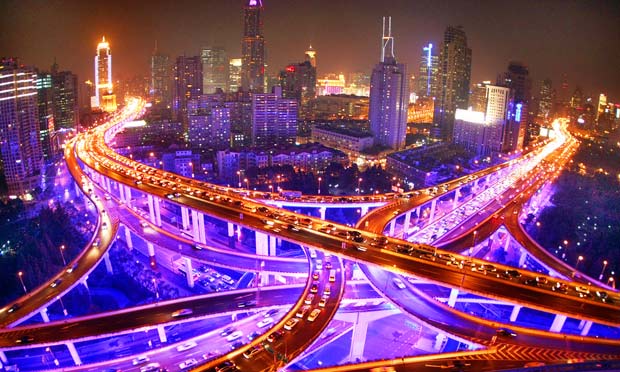A new urban agenda is needed to recognise the value of natural capital and to understand the cost of its loss if business and governments fail to take action now.

Sustainable development has become the global orthodoxy in today’s society. It seems straightforward that living today as if there is no tomorrow is irresponsible. But in fact, this is what we are doing.
We are eating into the natural capital of the planet and eroding its resilience when we should be living off the income it regenerates. When we consider how degraded our ecosystems already are, there is far less to sustain today than there was 20 years ago. Cities and urban areas are major contributors to this trend.
A new urban agenda is necessary in ensuring that cities not only become resource-efficient and low carbon-emitting, but go beyond that to positively enhance the ecosystems which provide them with goods and services. The solution lies in thinking beyond the vague and rather unambitious notion of sustainability and, instead, actively working towards regenerating soils, forests and watercourses. The aim is to improve rather than merely sustain their currently degraded condition. Urban economies that recognise the value of nature’s services and the costs of their loss set the stage for a regenerative city.
This requires investments in companies, organisations and funds that generate measurable social and environmental impact alongside financial return. A new compass is needed to guide bold policy directions, change incentive structures, reduce or phase out harmful subsidies and engage business leaders in a vision for an innovative, new economy.
From our partners:
This new agenda transforms urban areas into regenerative cities that dramatically reduce their dependency on fossil fuels, boost the deployment of renewable energies, reintroduce water to the hydrology cycle and make sewage reprocessing and nutrient capture a central plank of urban waste management. Globally there are numerous examples for good policies and practices for regenerative urban development.
Urban renewal underway in German’s second largest city
One of these is Wilhelmsburg — one of Hamburg’s former working class districts and home to 55,000 residents. Research there shows that local renewable energy can meet the electricity requirements of all buildings in this district by 2025. By 2050 almost all heating demands can also be met. The International Building Exhibition (IBA) in Hamburg has initiated projects for new energy efficient buildings, renovation of existing buildings and the generation of renewable energy. This is a step-by-step conversion to 100% renewable energy for a climate-neutral Wilhelmsburg. In the meantime, any energy imports into the city, for example for industrial needs, are to come from the region rather than distant sources to ensure that income and jobs remain in the area.
Encouraging investments through policy
Investments made in urban infrastructure today determine the shape of cities tomorrow. The political environment plays a critical role in enabling businesses to invest in future-just and sustainable technology. Enabling policy frameworks constitute the foundation of achieving climate protection goals, social and economic development and meeting ever-increasing global energy demand.
Transforming urban infrastructure into regenerative systems consequently requires an integrated approach, coordinated action and policy dialogue. It requires straddling the public, private and civil society spheres as well as a cross-sectorial approach among authorities. While urban planning used to be the exclusive realm of specialised experts, today public participation is understood as a prerequisite in transformation processes. Multi-stakeholder dialogues that ensure representation of a diversity of voices from those in the development process are therefore inevitable.
Businesses as the drivers of innovation, policy makers as the enablers of change and civil society as the pathfinders for the future, need to work together to design a cross-cutting strategy that provides competitive, feasible and effective solutions.
In order to design the roadmap and reach the goal of a regenerative city, providing information is not enough. We need to inspire change by enhancing policy dialogue and capacity building for agents of urban change.
This article originally appeared in The Guardian.












